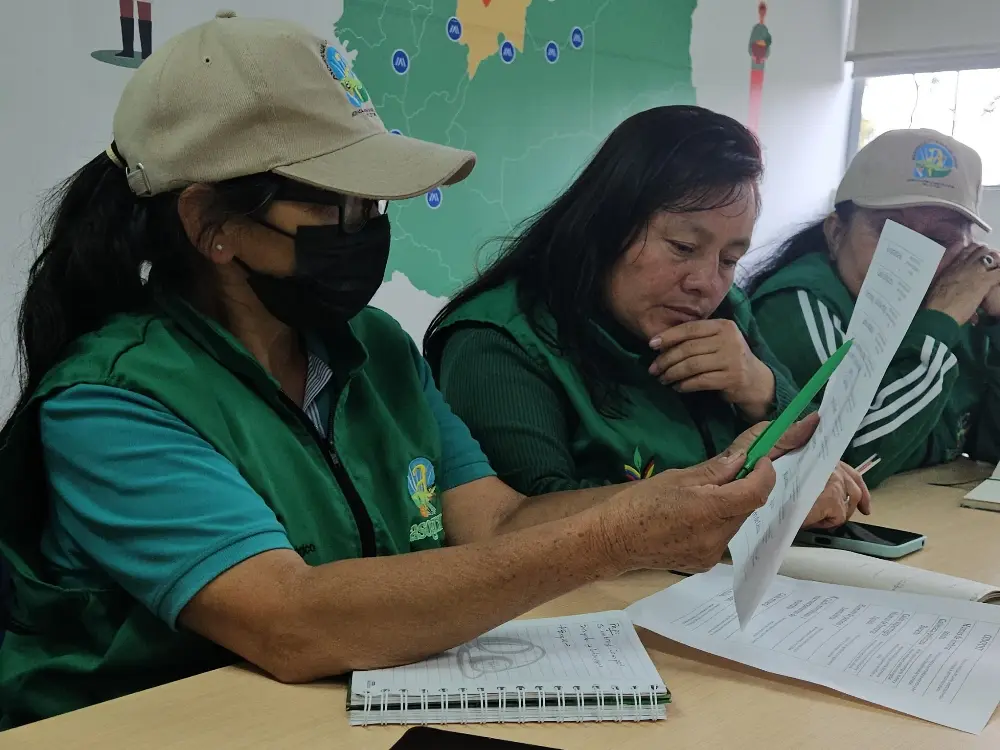- The agroecological transition in Colombia is advancing under the leadership of peasant women, supported by science and international cooperation, demonstrating that it is possible to produce sustainable food while simultaneously addressing climate change.
Mosquera, Cundinamarca. September 18, 2025. The urgency of facing climate change and the need to produce diverse, nutritious, and safe food with a lower environmental footprint have highlighted the importance of moving toward sustainable agricultural systems. In Colombia, nearly 60% of greenhouse gas emissions come from human activities related to agriculture, forestry, and other land uses, making agroecology a key approach for transitioning to more responsible production.
In this context, the organization Asogranjas, comprised primarily of peasant women from Sogamoso, has spent 12 years working on initiatives to conserve cultural heritage, promote rural tourism, and produce healthy food. Today, they are the leading actors in the Colombian-German Agroecological Project (PACA, for its Spanish acronym), an international cooperation initiative that brings together the Ministry of Agriculture and Rural Development of Colombia, the Federal Ministry of Food, Agriculture and Regional Identity of Germany, the Julius Kühn Institute, AGROSAVIA, URT, ADR, SENA, and Gopa AFC.
The project seeks to strengthen agroecological transitions within the framework of the National Public Policy on Agroecology, promoting a horizontal dialogue between peasants (farmers) and researchers. Thanks to this dynamic, agreements have been reached, such as the need to deepen research on biopreparations, standardize their production, and evaluate their effects on crops, with a view to achieving greater productive autonomy and more responsible use of natural resources.
Myriam Pérez, Leader of Asogranjas, pointed out that “We are convinced that agroecology is the path to producing healthy, nutritious food that respects our land. This process of learning and collaboration with researchers motivates us to move forward in the production and use of biopreparations that will help us become more autonomous and responsible with natural resources.”
As part of this process, the members of the organization visited AGROSAVIA’s Tibaitatá Research Center, where they learned about advances in high-quality potato seed production through aeroponics, silvopastoral systems of the high Andean tropics, the organomineral fertilizer production plant, and agricultural microbiology laboratory infrastructure. These facilities, equipped with specialized human talent and state-of-the-art technology, have enabled the development of innovative bioproducts that inspire peasant women to replicate and adapt experiences in their own territory.
The event concluded with a participatory activity in which priorities were defined for the production of biopreparations in Sogamoso. The next step will be to characterize raw materials and finished inputs and to launch experiments to assess the effectiveness of these products in strategic crops in the region.
Myriam Pérez added, “We deeply thank AGROSAVIA for its hospitality and for giving us the opportunity to learn about its facilities, share knowledge, and strengthen this alliance that will allow us to move forward together towards the agroecological transition.”
This transition is now becoming a reality thanks to the union of traditional peasant knowledge and scientific expertise, driven by initiatives such as PACA and supported by organizations like Asogranjas. It is a path built on collaboration, innovation, and respect for the land, projected as a concrete response to climate change and as a guarantee of healthy and sustainable food for present and future generations.
- More information here:
- María Elena Londoño Rubio
- Communications, Identity and Corporate Relations Professional
- Research Center Tibaitatá
- Communications, Identity and Corporate Relations Advisory Office
- melondono@agrosavia.co
- AGROSAVIA





